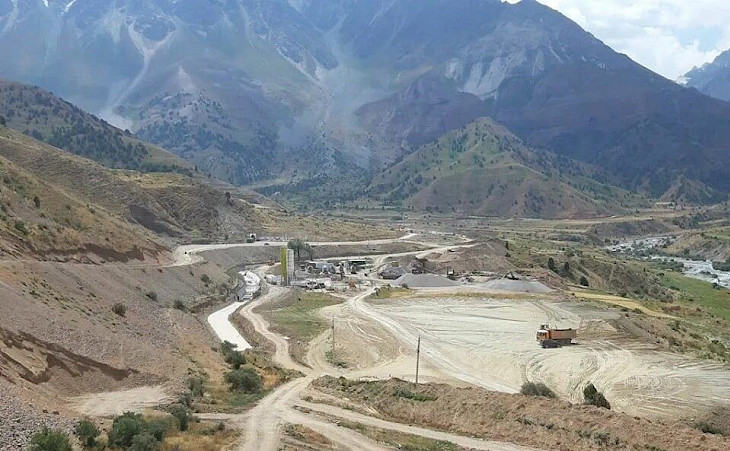In the first nine months of 2024, Tajikistan exported more than 4,300 tons of antimony ore and concentrates, valued at approximately $14 million, placing it second globally after China, according to the Tajikistan Customs Service report cited by Asiaplus.tj.
China's recent restrictions on antimony exports, effective September 15, 2024, have created opportunities for Tajikistan to emerge as a significant global supplier. China's export control measures, aimed at safeguarding national security, caused antimony prices to surge from $12,000 to $20,000 per ton. This has led countries like the U.S., heavily reliant on Chinese imports (63%), to seek alternative suppliers such as Tajikistan and Australia.
In 2023, Tajikistan ranked as the second-largest producer of antimony globally, with 21,000 tons, trailing only China (40,000 tons), according to USGS data reported by Forbes.ru. Tajikistan's main antimony reserves are located in the Jizhikrut and Konchoch ore fields in the north, with production centered at the Anzob Mining and Processing Plant.
Exploration in deeper horizons of the Jizhikrut deposit has revealed rich antimony ores with over 15% metal content, alongside industrial-grade gold and other valuable elements. Plans are underway to increase production to meet an annual capacity of 700,000 tons of ore. Additional geological surveys in other promising areas aim to expand Tajikistan's mineral resource base.
In 2022, Tajikistan exported 9,300 tons of antimony worth $102.3 million, which increased to over 10,600 tons valued at $107 million in 2023. President Emomali Rahmon has prioritized processing antimony into finished products to enhance the industry's value.
Antimony's strategic importance lies in its use in defense and battery manufacturing. Experts believe global trends, including China's export restrictions, position Tajikistan as a key player in the antimony market.
CentralasianLIGHT.org,
December 2, 2024

